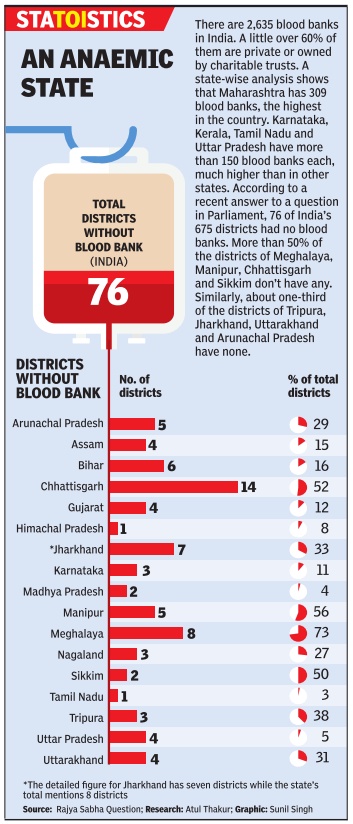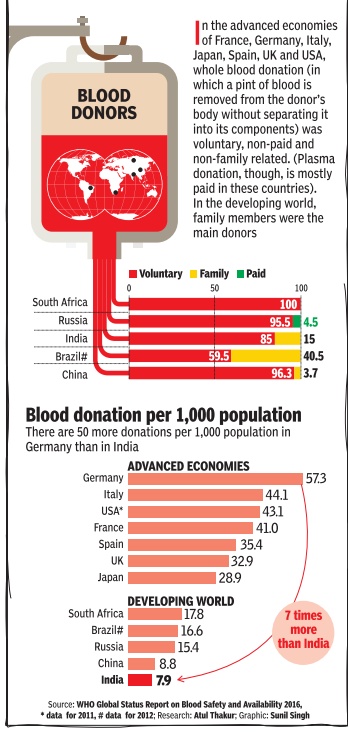Blood banks, donation: India

This is a collection of articles archived for the excellence of their content. |
Blood donation: the year-wise position
2013-16
See graphics, 'State-wise status...' and 'Blood donors, voluntary...'


Women patients
Getting blood donor for women patients tough
Males outnumber female patients when it comes to major surgeries in city’s prominent hospitals. At both Max and Rockland, the percentage of females who had undergone major surgeries was about 45. Orthopaedics was the only department at Max where female patients outnumbered males — apart from oncology where only three operations had taken place. In the other four, women comprised between 29.75 to 44.44% of the patients.
At Rockland, the only department with more female surgeries was again orthopaedics at 53%. At others, the percentage was about 42-43%.
Doctors say while families may not necessarily refuse point blank to go ahead with an expensive surgery when the patient is a woman, the sense of urgency is definitely less. As a result, many do not survive till the surgery. Getting simple things like a blood donor for a woman patient is almost always difficult as family members seldom volunteer, they say. As TOI had highlighted earlier, in case of organ transplants, while the male-female ratio is heavily skewed in favour of males when it comes to recipients, it is almost equally tilted in favour of females when it comes to donors.
The reaction of a family when a woman is advised an expensive surgery is to go ‘‘doctor-shopping’ in search of a less expensive or a non-surgical option, says Dr Akash Juneja, consultant ENT surgeon at Jaipur Golden Hospital. ‘‘They lose time. This seldom happens when the patient is a male. In India, the decision-maker is always the husband. So the surgery can wait. Man being the bread-winner is thought to ‘deserve’ quality care,’’ he says.
Says Dr Anupam Sibal, medical director, Indraprastha Apollo Hospitals: ‘‘Some 20-25% more women than men will not come back if advised an expensive surgery. Even if its a child, there will be many more questions asked before the surgery of the daughter, the commonest being whether marrying her off may be a problem because of the surgery.’’ He adds, ‘‘Women in our country are always somewhat neglected — look at nutrition, they are always the last to eat in the family. Their health is often rock bottom in the family’s priority list so that they suffer in pain.”